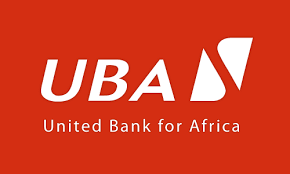When the Organisation for Economic Cooperation and Development (OECD) rolled out it’s Inclusive Framework on BEPS, it was meant to provide a platform for global taxation. But a closer look has revealed that endorsing the agreement will hurt Nigeria’s revenue generation in the medium to long term; BENJAMIN UMUTEME writes.
By virtue of the 2020 Finance Act, the Federal Inland Revenue Service (FIRS) is empowered to collect tax revenue from entities doing business in Nigeria-online businesses inclusive.
According to the Act, Foreign persons earning business profits from Nigeria are taxed under Section 6 of PITA once a fixed base/taxable presence is created subject to existing treaties, and they do not have to be situated in Nigeria to be caught by the Act. Non-resident multinationals can also appoint fiscal representatives.
OECD digital tax rule
However, OECD’s statement on a two-pillar solution to address the tax challenges arising from the digitalisation of economies. The body stated that to be able to tax any digital sale or any multinational enterprise (MNEs), that company or enterprise must have an annual global turnover of €20 billion and a global profitability of 10 per cent.
In addition, the €20 billion global annual turnover and 10 per cent profitability must be for a consecutive four years period.
Also, the OECD said for a Multinational Enterprise to tax under the rule, the entity must have generated at least €1 million turnover from Nigeria within a year.
At first glance, the rule will protect start-ups but a closer look at the agreement has shown that if endorsed by Nigeria, it has the potential of wiping out a substantial portion of revenue that would accrue to the country.
‘Not in Nigeria’s interest’
It is interesting to note that while OECD’s rule aims to protect global digital businesses, it failed to consider the peculiarity of each country’s laws and how they guide business conducts.
And Nigeria’s foremost tax body did acknowledge that much but it resisted the urge to go with the flow.
Group Lead Special Tax Operations Group, and Nigeria’s representative at the OECD Inclusive Framework, Matthew Gbonjubola noted that while both Pillars are expected to increase Global Corporate Income Tax by as much as $150 billion per annum, with attendant favourable environment for investment and economic growth, the pillars failed to address negative revenue outcome for Nigeria and other developing countries.
This you can see from the outcome, with respect to the complexity, issues of high cost of implementation and on the issue of revenue accruable to developing countries. When you look at the bulk of the money that would accrue from the project, if any, 70% – 80% will go to the developed countries. Almost nothing comes to the developing countries.” Gbonjubola explained.
Gbonjubola noted that for Nigeria, “Pillar 2 is not a deal breaker because Nigeria could work with Pillar 2. “We have a few issues with Pillar 2 but we could live with them but because Pillar 1 and 2 are a single package, since we are rejecting Pillar 1, we can’t take on Pillar 2”.
“Under the inclusive framework rule you either accept both Pillars or you reject both Pillars. You cannot pick one to the exclusion of the other. And since Nigeria is not able to join one of the pillars, it means we are out of both Pillars,” he said.
Explaining further, Executive Chairman of FIRS, Muhammed Nami, said that Nigeria was cautious about endorsing the OECD/G20 Inclusive Framework two-pillar solution to the taxation of the digital economy so that it does not lose out on potential revenue from the digital economy.
Fiscal and monetary authorities alike continue to say Nigeria has a revenue challenge especially with it low tax collection. This, they argue is due to the low tax base as a greater percentage of businesses were in the informal sector.
For Nami, the rule places Nigeria in an unfair position especially to domestic companies which, with a minimum of above N25 million (that is about €57,000) turnover, are subject to companies income tax in Nigeria. He added that this rule will take-off so many Multinational Enterprises from the scope of those that are currently paying taxes to Nigeria. In other words, even the MNEs that are currently paying taxes in Nigeria would cease to pay taxes to us because of this rule.
The Head of Nigeria’s tax body stressed the rules were such that in the event of a dispute between Nigeria and a Multinational Enterprise, Nigeria would be subject to an international arbitration panel as against Nigeria’s own justice system.
“Nigeria would spend more; even beyond the tax yield from such cases,”he said.
What experts are saying
Managing Director of SD&D Management Limited Gabriel Idakolo told Blueprint that: “The Organisation for Economic Cooperation and Development (OECD) global objectives using the Pillar 1 and 2 initiative is applicable to all member countries of which Nigeria is a signatory.
“However, the policy application could reduce Nigeria ‘s tax revenue instead of increasing it. The policy framework as it stand favours more industrialised countries with deeper digital innovations than Nigeria.
“The major implication of not signing the agreement is that it would reduce our international rating with the OECD and other international financial institutions would rely on their advice about Nigeria when it comes taxation on online business transactions.
On his part, Business Consultant and analyst Agaba Wilson Agaba said after a close look at the document had to agree with the position of the FIRS.
“The Organisation for Economic Cooperation and Development (OECD)/G20 inclusive framework includes a two-pillar solution to the taxation of the digital economy. Pillar one is simply saying that to be able to tax any digital sale or any multinational enterprise (MNEs), that enterprise must not only have an annual global turnover of €20 billion and global profitability of 10 per cent but also maintain that for four consecutive years. This rule will exclude many of the multinational enterprises currently paying taxes to Nigeria. It is also unfair to domestic companies which, with a minimum of above N25 million turnovers, are subject to companies’ income tax.
“Furthermore, the agreement states that in the event of a dispute between Nigeria and a Multinational Enterprise, Nigeria would be subject to an international arbitration panel as against Nigeria’s own justice system even where the income is directly related to a Nigerian member of an MNE group, which is ordinarily subject to tax in Nigeria on its worldwide income and subject to the laws of Nigeria.
“How can we be sure that Nigeria will get a fair deal from such a process? This is not to mention the heavy legal, travelling and other related expenses that may end up outweighing the tax yield from such cases.
“In my opinion, the FIRS took the best decision. And we are not alone as other countries such as Barbados, Estonia, Hungary, Ireland, Kenya, Peru, St. Vincent and the Grenadines, and Sri Lanka have expressed similar concerns,” Wilson Agaba added.
Speaking, financial analyst Aliyu Ilias agreed with “the head of the FIRS because if you go ahead and implement what they want, it would have a negative effect on Nigeria especially as there are some conditions.
“Those international organisations in Nigeria if they have a dispute with Nigeria they’ll quickly go to the court and it will not be a Nigerian court, it will be an international court. It will cost Nigeria money to hire lawyers, among other things.
“I think the idea of not signing the agreement remains the best option for Nigeria.
“For me, it’s in a good direction. It’s not only in Nigeria, there are other countries that hold on from signing the new tax agreement,” Ilias said.
Adefolarin Olamilekan is a political economist and development Researcher.
“This are interesting time as the uncertainty around global economy continues to unravel.
“Moreso, this period mark the time nations across the face of the earth recover from Covid-19 shock, particularly as major international bodies finding ways to improve economy of member nations.
The OECD is not short in making things better for its members with innovative international tax system.
However, the controversy trailing the Agreement on Online Business Transactions signing is understandable. It is the outplay of international political economy that third world countries in the pass failed to negotiate from a strong perspective.
“And at this point, the Federal Inland Revenues Services (FIRS) as the Nigerian state custodian of tax collection having understood implications of signing the agreement considered the impacts of such agreement on local players especially as foreign players dominate the space with technology ownership and other advance skills that is a major ingrediate of online businesses.
“Chiefly also, FIRS may be right not to hurriedly sign this document in the sense that our national interest may not be protected as well as if we think through what this could imply on our national economic security.
“Although, FIRS not signing it now those not stop it from signing it in future. So far it will be reviewed and grevious areas can be addressed because this may also be one of the challenges that other OECD members from African can take advantage of to renegotiate from a stronger point because, Africa and Nigeria particularly need the revenue more now than before,as millions of Nigeria on daily basis conduct transactions online. FIRS need, however to engage stakeholders across board to get the best out off the law,” Olamilekan said.




